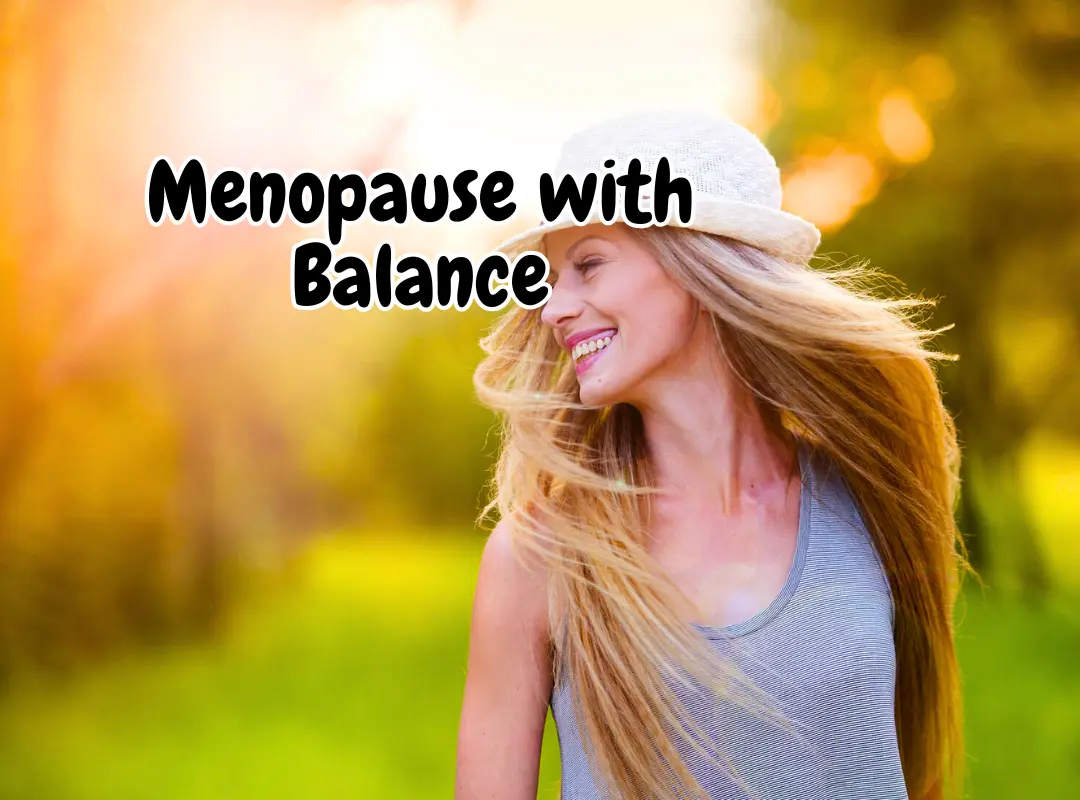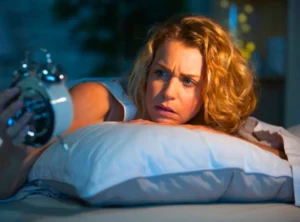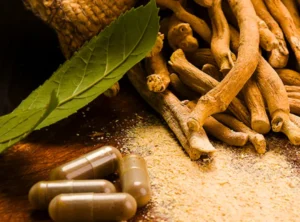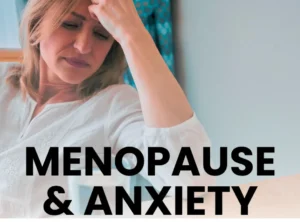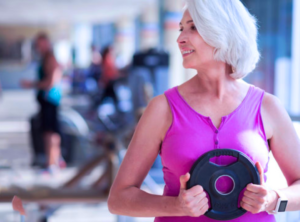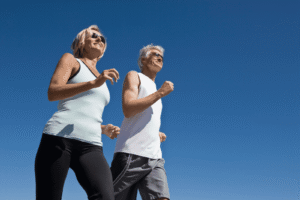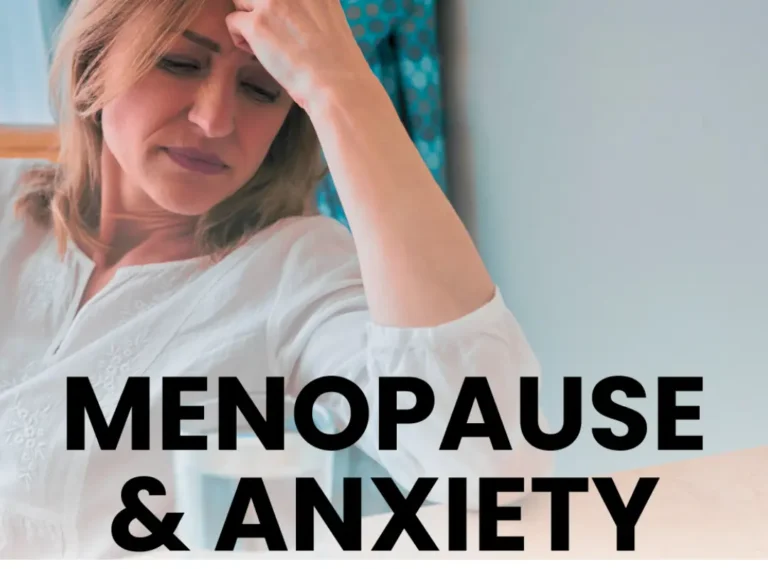
Discover why anxiety is common during menopause and learn effective natural, therapeutic, and medical strategies to relieve your symptoms and enhance emotional wellbeing.
What Is Anxiety in Menopause?
Anxiety is a natural stress response, but during menopause it may surface suddenly and intensely. Many women experience constant worry, tension, a racing heart and even panic attacks, without any obvious trigger. This anxiety can severely disrupt sleep, relationships and overall quality of life.
Why Does Anxiety Increase During Menopause?
As women transition from perimenopause to menopause, levels of oestrogen and progesterone decline dramatically. These hormones are closely tied to neurotransmitters such as serotonin and dopamine, which regulate mood. Hormonal shifts often trigger emotional instability, irritability and heightened anxiety.
Moreover, life changes such as children leaving home, bodily transformations, ageing parents and career pressures can intensify the emotional strain typical of this phase.
Common Anxiety Symptoms in Menopause

Excessive, unexplained worry
Heart palpitations or a racing heartbeat
Muscle tension and bodily aches
Irritability and mood swings
Difficulty concentrating
Insomnia or light, restless sleep
Panic attacks or feelings of losing control
How to Ease Anxiety During Menopause
Anxiety during menopause can be overwhelming, but here are evidence-based strategies to help you regain balance and calm:
1. Healthy Lifestyle: The Foundation of Hormonal and Emotional Balance
1.1 Regular Physical Exercise
Activities such as walking, swimming, dancing or yoga boost mood and reduce cortisol.
Strength training enhances sleep quality and self-esteem.
✅ Just 30 minutes daily can make a significant difference.
1.2 Anxiety-Reducing Nutrition
Include foods rich in magnesium (avocado, seeds), tryptophan (eggs, oats) and omega‑3 (oily fish).
Limit caffeine, refined sugars and excessive alcohol intake.
✅ Sip calming teas like chamomile and lemon balm.
1.3 Restorative Sleep Routine
Set consistent bed and wake times, avoid screens before bedtime and use soft lighting.
Try a warm bath and lavender aromatherapy for extra relaxation.
✅ Poor sleep increases the risk of anxiety and depression.
2. Natural Emotional Management Techniques
2.1 Meditation and Mindfulness
Reduce mental noise and nervous system overactivity.
Apps like Insight Timer are great for beginners.
✅ Just 10 minutes daily yields noticeable benefits.
2.2 Deep, Conscious Breathing
Exercises like 4‑7‑8 breathing (inhale 4s, hold 7s, exhale 8s) can stop panic in its tracks.
✅ Use whenever you sense tension or stress rising.
2.3 Therapeutic Writing (Journaling)
Recording thoughts and emotions aids emotional clarity.
Ask yourself prompting questions such as, “What am I feeling right now?”
✅ Spend 5 minutes journaling before bed.
3. Therapeutic Support: Psychology and Complementary Therapies
3.1 Cognitive Behavioural Therapy (CBT)
Helps reshape anxious or irrational thought patterns.
Offers practical coping strategies for emotional triggers.
✅ Seek out psychologists specialising in women’s health.
3.2 Support Groups and Peer Sharing
Discussing experiences with other women alleviates emotional isolation.
Online communities and social media platforms are great resources.
✅ Feeling understood is a powerful step towards relief.
4. Hormonal Therapy and Natural Supplements
4.1 Hormone Replacement Therapy (HRT)
Recommended when anxiety is clearly linked to declining hormone levels.
Must be prescribed by a gynaecologist following a personalised assessment.
✅ Can improve sleep, mood, libido and emotional stability.
4.2 Herbal Remedies and Natural Supplements
Magnesium: Supports nervous system resilience.
Ashwagandha, valerian, passionflower: Help reduce stress and promote relaxation.
Omega‑3 and vitamin D: Aid brain health and reduce inflammation.
✅ Always consult a healthcare professional before starting any supplement.
5. Medications and Complementary Medical Approaches
5.1 Anxiolytics and Antidepressants
Targeted for moderate to severe anxiety that disrupts daily function.
Used in conjunction with therapy and under medical supervision.
✅ Typically recommended for short to mid‑term use with regular monitoring.
5.2 Acupuncture and Integrative Therapies
Acupuncture has been shown to regulate the nervous system and reduce anxiety.
Other supportive therapies include aromatherapy, therapeutic massage and reflexology.
✅ Used as complementary options within a broader treatment plan.
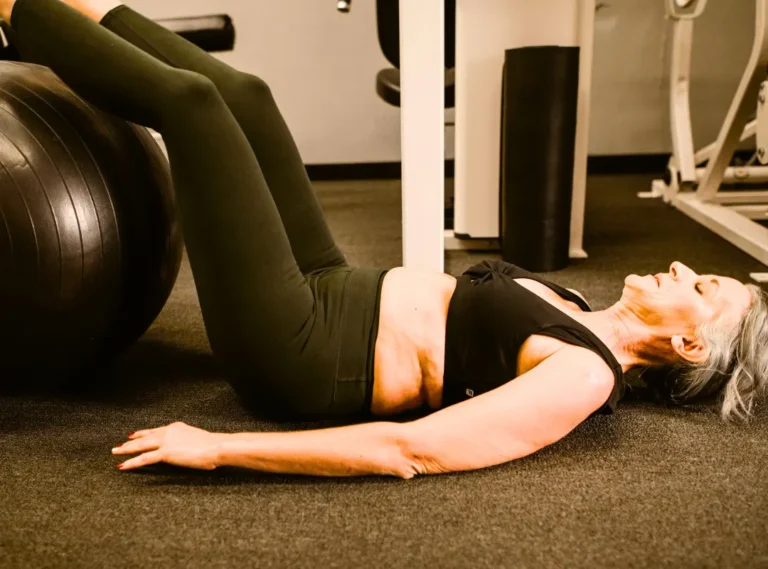
Quick Summary: Effective Strategies to Relieve Menopausal Anxiety
| Strategy | Key Benefit |
|---|---|
| Regular physical exercise | Releases endorphins, reduces tension |
| Balanced, anxiety-calming diet | Stabilises mood and blood sugar |
| Quality sleep routines | Rebalances hormones and emotional wellbeing |
| Meditation & breathing | Provides immediate relaxation |
| Cognitive therapy (CBT) | Reframes anxious thoughts |
| HRT & herbal therapy | Addresses hormonal and emotional symptoms |
| Professional support & groups | Reduces isolation, validates experiences |
Conclusion
Experiencing anxiety in menopause is neither a sign of weakness nor something to be ashamed of — it is a physiological response to significant change. The good news is that effective, accessible strategies exist to help regain emotional wellbeing. Acknowledging your feelings and seeking support can make all the difference. You’re not alone — and relief is within reach.

Scientific Studies
Anxiety during the menopausal transition: a systematic review
Authors: review published in 2011 in Psychoneuroendocrinology
Anxiety disorder in menopausal women and the intervention efficacy of mindfulness-based stress reduction
Authors: Chinese study published in PMC – was published in the American Journal of Translational Research on March 30, 2023
